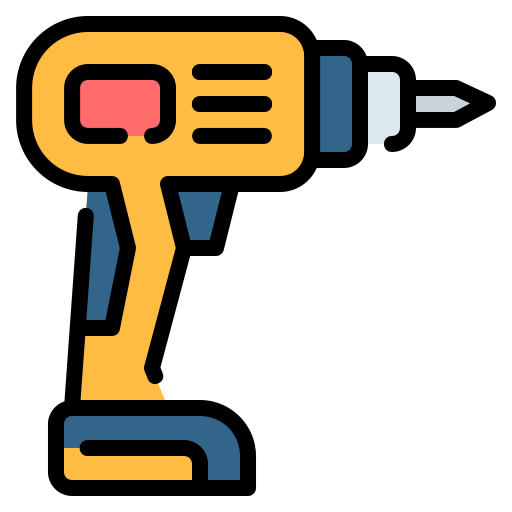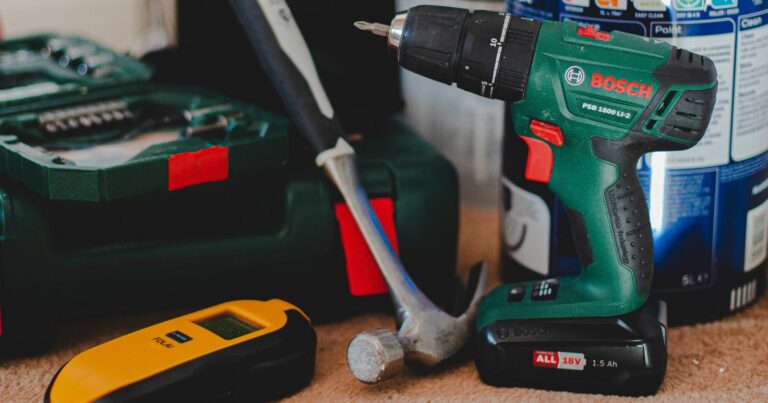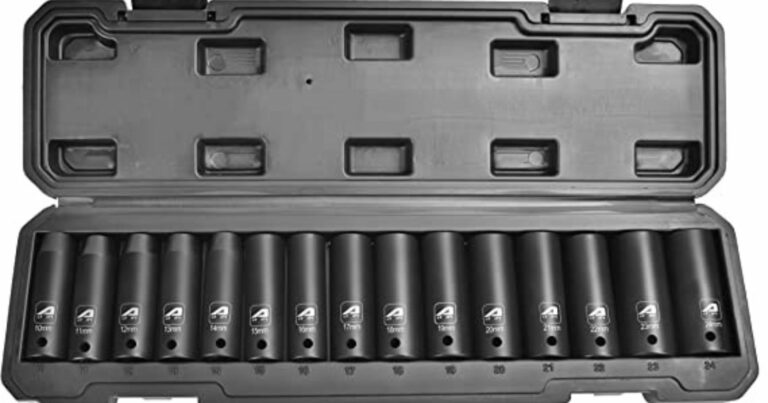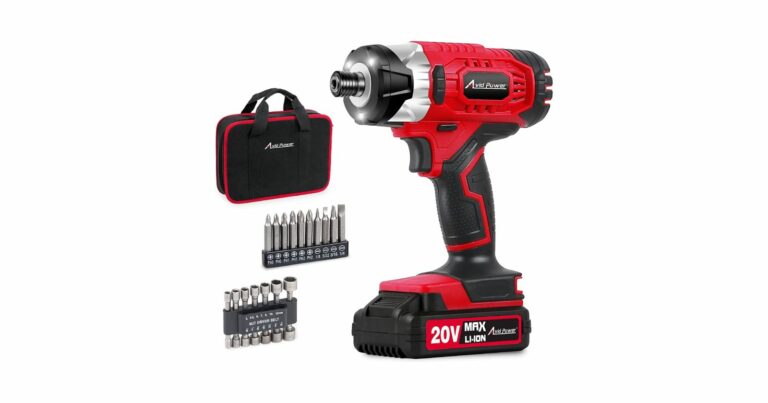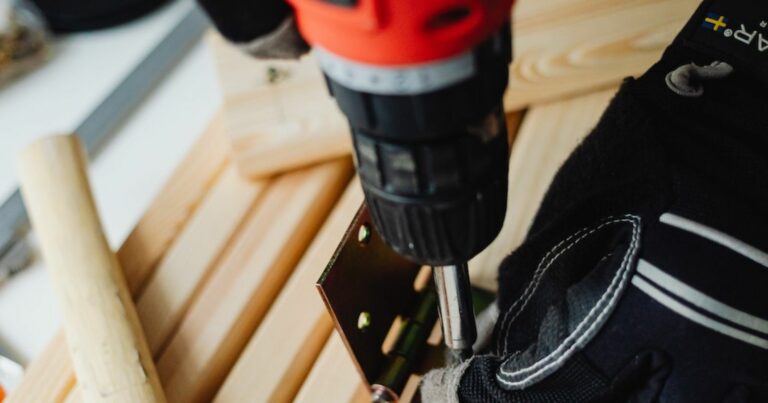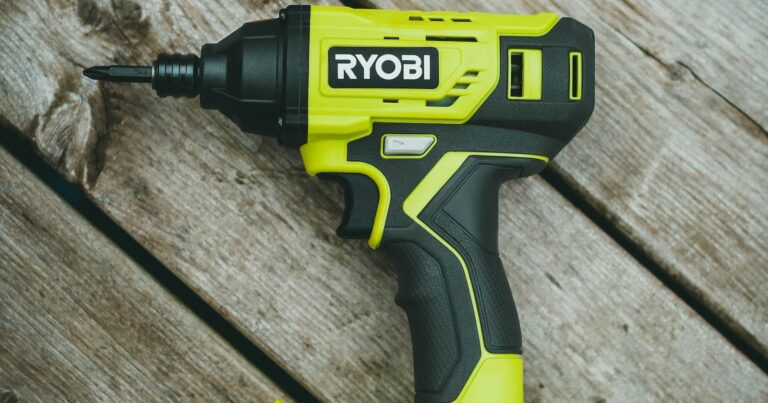Impact Driver Bits vs Drill Bits: Which One Do You Need?
If you’re a DIY enthusiast or a professional contractor like me, you already understand the importance of selecting the appropriate tool for any given job. When it comes to drilling and driving screws, two commonly used tools are impact driver bits and drill bits. It’s crucial to note that these two types of bits are not interchangeable. Using the wrong bit can lead to subpar performance, potential damage to the tool or material, and even personal injury. That’s why in this post, I will personally compare impact driver bits versus drill bits to help you grasp the distinctions between them and make an informed decision for your upcoming project.
What are Impact Driver Bits?
Impact driver bits are specially designed for use with impact drivers, which are high-torque tools used for driving screws and other fasteners. Impact driver bits are made of tougher materials, such as high-speed steel and carbide, to withstand the high-torque output of impact drivers. They have a hexagonal shank that fits into the chuck of an impact driver, allowing the bit to stay securely in place during use.

What are Drill Bits?
Drill bits, on the other hand, are designed for use with drills, which are power tools used for drilling holes into materials. Drill bits come in a variety of shapes and sizes and are made of different materials depending on the type of material being drilled. They have a cylindrical shank that fits into the chuck of a drill, allowing the bit to spin at high speeds to create a hole.
Comparison between Impact Driver Bits and Drill Bits
Speed and Torque
One of the main differences between impact driver bits and drill bits is the speed and torque. Impact driver bits deliver higher torque than drill bits, making them ideal for driving screws and other fasteners into tough materials, such as hardwood and metal. Drill bits, on the other hand, spin at higher speeds, making them ideal for drilling holes quickly and efficiently.
Material Compatibility
Another difference between impact driver bits and drill bits is their compatibility with different materials. Impact driver bits are designed to handle high-torque applications, making them ideal for tough materials, such as hardwood and metal. Drill bits, on the other hand, are designed to drill holes into a variety of materials, including wood, plastic, and metal. Different drill bits are designed for different materials, such as masonry bits for concrete and tile, and spade bits for wood.
Precision
Impact driver bits are not designed for precision work, as the high-torque output can make it difficult to control the speed and direction of the bit. Drill bits, on the other hand, are designed for precision work, allowing you to drill holes exactly where you need them.
Durability
Impact driver bits are generally more durable than drill bits, as they’re made of tougher materials and are designed to withstand the high-torque output of impact drivers. Drill bits, on the other hand, are more prone to wear and tear, especially if they’re used on tough materials.
Watch This Video And Learn Impact Driver Bits vs Drill Bits: Which One Do You Need?
Maybe its time to get a new bit set? Check out the Best Impact Driver Bit Set.
How to Choose the Right Bit
Drill bits come in a variety of materials, including high-speed steel (HSS), cobalt, and titanium-coated. High-speed steel (HSS) is a common material used for general-purpose drilling in metal and wood. Cobalt drill bits are much harder and more heat-resistant than HSS bits, and they are ideal for drilling hard materials such as stainless stee
l and cast iron. Titanium-coated bits have a longer lifespan than HSS bits and provide greater heat resistance.
Drill bits are also designed for specific purposes, including general-purpose bits, masonry bits, spade bits, and twist bits. General-purpose bits are versatile and can be used on a wide variety of materials, including wood, metal, and plastic. Masonry bits are specifically designed for drilling through concrete and other masonry materials. Spade bits are used to drill large holes in wood, while twist bits are used for precision drilling.
Impact Driver Bit Characteristics
Impact driver bits are made of high-quality materials such as chrome vanadium steel, which is known for its strength and durability. The bits are also designed to withstand the high torque produced by impact drivers. Impact driver bits are available in a range of sizes and shapes, including Phillips, Torx, and square drive.
Some impact driver bits have a magnetic tip, which helps hold the screw in place and prevents it from slipping. Other bits have a quick-change mechanism, which allows you to change the bit quickly and easily without having to use any tools.
Impact Driver Bits vs. Drill Bits: Which One Should You Use?
When it comes to deciding between impact driver bits and drill bits, it depends on the task at hand. If you’re working on a project that requires driving screws into wood or other materials, an impact driver with impact driver bits is the way to go. The high torque and fast rotation speed of the impact driver make it much easier to drive screws quickly and efficiently.
If you’re drilling holes in metal, wood, or other materials, a drill with drill bits is the better option. Drill bits are designed to drill precise holes and can be used on a wide variety of materials. While impact drivers can be used for drilling, they are not as precise as drills and may not provide the cleanest holes.
It’s worth noting that some drill bits can also be used in impact drivers. However, if you’re planning on using an impact driver regularly, it’s best to invest in impact driver bits specifically designed for use with an impact driver.
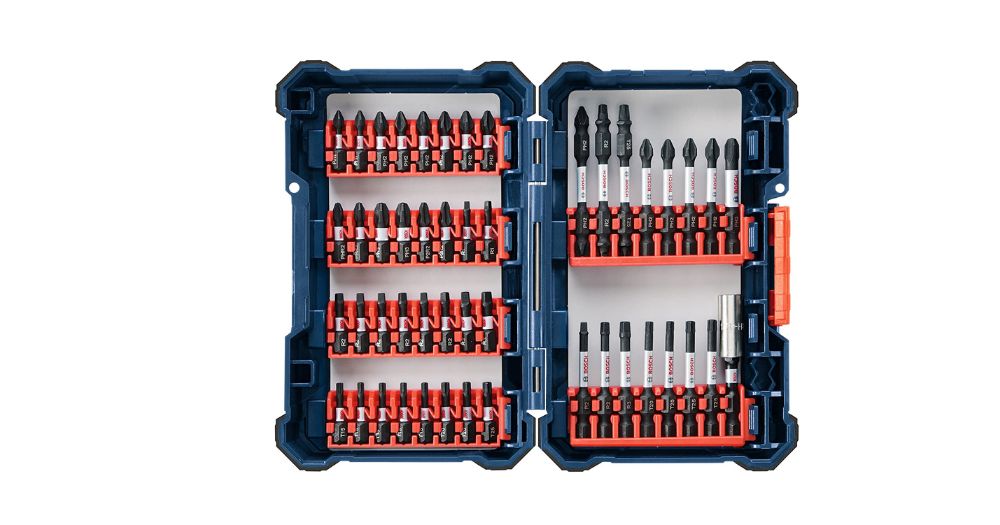
FAQs
When it comes to power tools, choosing the right accessory can make all the difference in the success of your project. Here are some common questions about impact driver bits vs drill bits:
Can I use drill bits with an impact driver?
Yes, in most cases, you can use drill bits with an impact driver. However, you will need to use a hex-to-round adapter to fit the drill bit into the impact driver’s chuck. It’s important to note that while an impact driver can provide the necessary torque to power through tough materials, it may not be the best choice for precision drilling or delicate work.
What makes impact driver bits different from drill bits?
Impact driver bits are designed to withstand the high-torque, high-speed rotational force produced by an impact driver. They are shorter and thicker than drill bits, with a hexagonal shank that allows them to be quickly and securely inserted into the impact driver’s chuck. Drill bits, on the other hand, are typically longer and thinner with a smooth round shank that fits into a standard drill chuck.
Can impact driver bits be used with a regular drill?
Yes, impact driver bits can be used with a regular drill, but you will need to use a chuck adapter to fit the hexagonal shank of the impact driver bit into the smooth round chuck of the drill. It’s important to note that while impact driver bits are designed to handle high-torque applications, they may not be the best choice for precision drilling or delicate work. If you’re working with wood or other soft materials, a regular drill bit may be a better choice.
For additional resources to explore. Check out the Best 3 Impact Driver Drill Magnetic Bit Holder.
Conclusion
When it comes to choosing between impact driver bits and drill bits, it all comes down to the task at hand. Impact driver bits are designed for driving screws quickly and efficiently, while drill bits are designed for drilling precise holes. Both tools have their own unique characteristics and can be used on a variety of materials. By understanding the differences between the two, you can choose the right tool for the job and get the job done quickly and efficiently..
